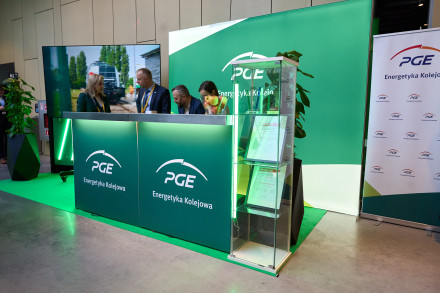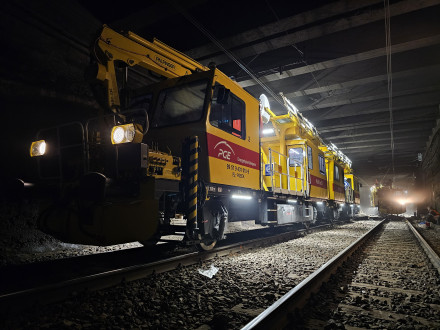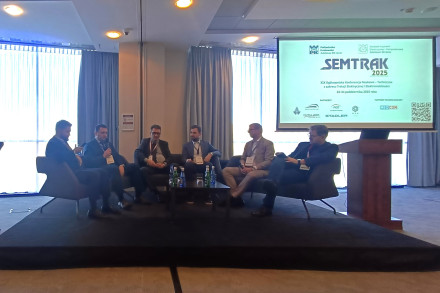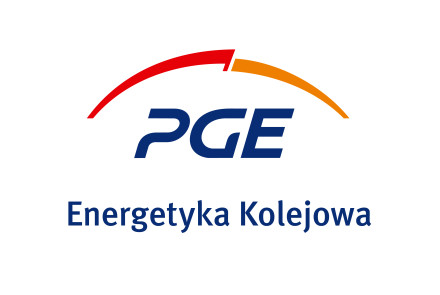Panels on sidings, warehouses and buildings of three freight carriers
07.02.2022, 12min read
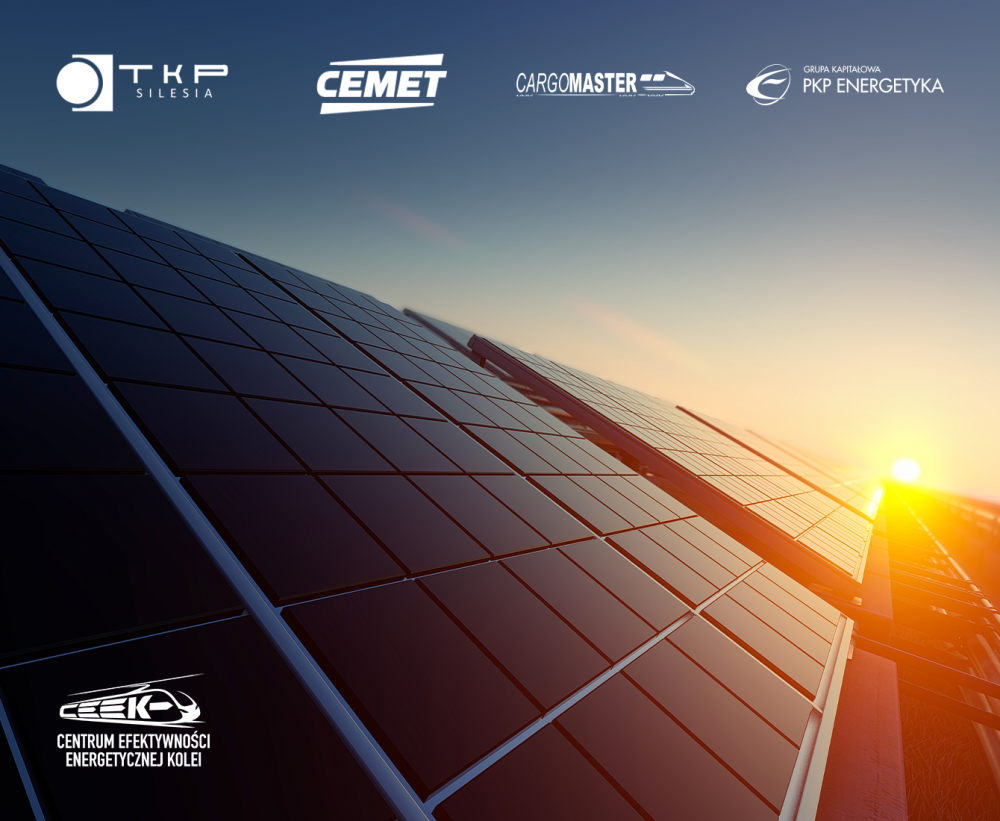
CARGO Master, CEMET and TKP Silesia plan to produce renewable non-traction energy for their own use with the support of PKP Energetyka.
CARGO Master, CEMET and TKP Silesia are other railroad entities that plan to invest in non-traction renewable energy generation. The letters of intent signed with PKP Energetyka open the way for the companies to install photovoltaic panels on buildings and infrastructure. Previously, 9 other railroad companies signed similar agreements.
The purpose of the cooperation between the companies and PKP Energetyka will be to select the most efficient, technologically innovative, and economically beneficial and environmentally friendly ways of producing and using energy from the sun. Investments in photovoltaic installations will allow companies to generate non-traction renewable electricity for their own needs, which will contribute to savings and reduction of the generated carbon footprint. PKP Energetyka will share its experience and expertise in the selection of a model for installation and operation of installations on buildings and perimeter infrastructure.
The use of renewable energy sources is already becoming a standard for responsible companies that care about their environmental impact. Modern and competitive rail transportation requires this type of investment, and we are pleased to join the ranks of companies using such solutions. Cooperation with experts from PKP Energetyka will allow us to create a tailor-made system for installing and operating panels on our infrastructure," says Bartlomiej Hadzicki, CEO of CARGO Master.
CARGO Master is a provider of specialized rail transportation services and training for those employed in positions directly related to rail traffic safety, using the latest technology, including simulator training, eco-driving training. The company employs top-class specialists in the fields of traction, wagons, carriage, traffic technology, safety, RID, etc. It offers its customers services such as personnel and economic services for rail carriers, training, or dispatching services such as coordination and control of licensed transports, or keeping records of rolling stock operation.
Modern logistics must evolve and change to adapt to customer expectations. Reducing the carbon footprint and using renewable energy sources are undoubtedly important directions for the entire transportation sector. We are very pleased that by establishing cooperation with PKP Energetyka we will have the opportunity to develop in this direction. Generating green energy will allow us to both reduce our carbon footprint, but also save money," stresses Grzegorz Lipowski, CEO of CEMET S.A.
CEMET is a leading logistics operator operating in the market since 1958. It specializes in providing logistics services and organizing rail transportation of loose materials for the cement, lime and energy industries at home and abroad. It has the largest number of approximately 3,000 specialized railcars for the transportation of loose materials and aggregates in Poland.
- The installation of photovoltaic panels on our buildings is an important investment for the company. Using green energy generated for our own needs is a step towards modern solutions that are very important to us and our customers. Sustainable development and care for the environment is only one aspect of this investment, equally important is, of course, the reduction of the running costs of our operations, which will be made possible by reducing the amount of externally contracted energy," - comments Radoslaw Mrózek, CEO of TKP Silesia.
TKP Silesia's main business is full-train transportation services in southwestern Poland, as well as between Poland and the Czech Republic. The company specializes in technological transports. In addition, the company's scope of operations also includes the comprehensive operation of railroad sidings and the performance of last mile services. TKP Silesia also provides a wide range of training services as a training center authorized by the Railway Transport Office.
The letters of intent signed by PKP Energetyka with CARGO Master, CEMET and TKP Silesia are further agreements with railroad companies on cooperation in obtaining non-traction energy from renewable sources. A total of 12 rail companies have already signed such letters of intent.
PKP Energetyka, CARGO Master and CEMET are members of the Center for Energy Efficiency of Railways (CEEK), a rail industry initiative working for more competitive and environmentally friendly rail transportation. In terms of energy efficiency, CEEK's plans are to reduce the sector's energy consumption by 1.2 TWh by 2030 and reduce CO2 emissions by 1 million tons by then. To this end, the Center is promoting the development of recuperation technologies, eco-driving and the use of renewable energy installations on railroad land and facilities.
We are very pleased with the growing awareness of sustainable and responsible development issues in the rail sector, which is confirmed by the signing of agreements with CARGO Master, CEMET and TKP Silesia. The use of energy from renewable sources is an important direction for the industry, which can contribute to increasing its competitiveness in the freight and passenger transport market," - says Leszek Hołda, member of the board of PKP Energetyka.
Since 2019, CEEK has also been implementing the Green Railway Program, which assumes that in 2030 2.5 TWh (85% of traction energy used by the rail sector) will come from RES, which will translate into a reduction of carbon dioxide emissions by 8 million tons. As part of the Program, the first contract for the supply of green traction energy, which PKP Energetyka signed with the Łódź Agglomeration Railway, has been in effect since January this year. Under this agreement, the share of energy from RES powering ŁKA trains will already reach at least 30 percent this year, and will gradually increase in subsequent years until 2028, when all the energy consumed by the carrier will come from green energy.


